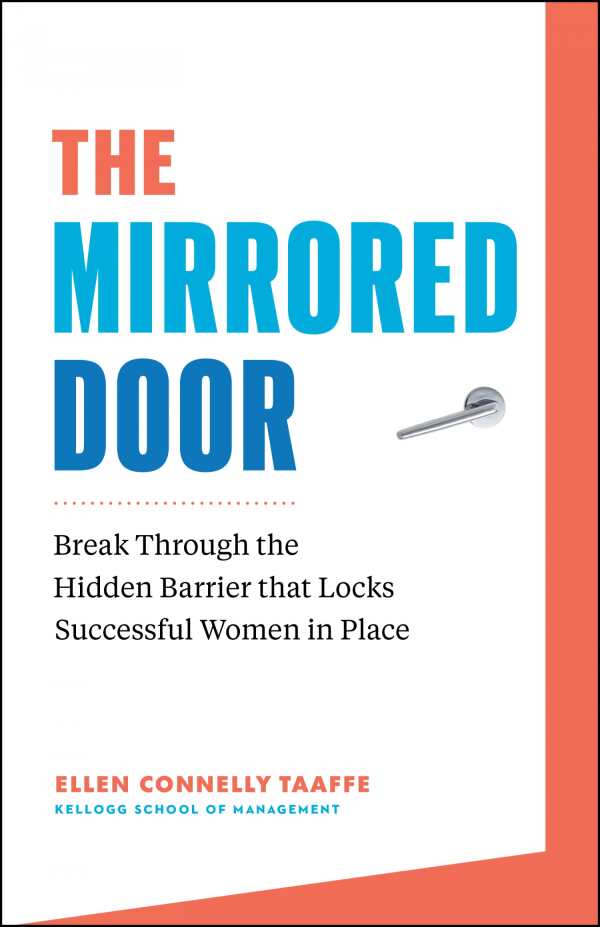The Mirrored Door
Break through the Hidden Barrier That Locks Successful Women in Place
The Mirrored Door is an insightful self-help book that exposes, and enables pushing past, the particular barriers that women in business face.
Ellen Connelly Taaffe’s business book The Mirrored Door concerns the particular barriers that women face in the workforce; it names strategies for overcoming these.
Utilizing first-person accounts, imagined narratives, and research, The Mirrored Door posits that many women, when pursuing professional success, face moments of self-doubt that prevent them from reaching their full potential. “We encounter it when we reflect inward and question our readiness for and worthiness of an opportunity,” it says. “Instead of going for it, we assess that we cannot.”
The book is open about its own limitations: it acknowledges that it is written from a binary lens, without exploring additional markers of difference. In that sense, it treads where others have gone before, with the distinguishing characteristic being its “mirrored door” nomenclature. Taaffe also notes that she is “not a researcher [but] a dot connector.” Thus, rather than sharing original research on women and business, the text pulls from extant knowledge to support its claims. Taaffe’s curriculum vitae gives credibility, though: she is a professor at Northwestern University and the founding director of the Women’s Leadership Program, and she boasts accolades that speak to her expertise specific to the topic of women in business. Further, in synthesizing its outside information, the book is thorough in showing how gender stereotypes are harmful—in particular when it comes to women’s belief in their own abilities. While the book addresses the phenomenon known as “imposter syndrome” as a separate issue, those familiar with the term will find commonalities between the two ideas.
The book’s individual examples of the barriers that women in business face are sympathetic. While several reflect Taaffe’s own experiences, they also represent a broad blend of experiences, used to illustrate hang-ups like perfectionism and inward negativity—and how people might learn from the examples of others to overcome such challenges. And it turns some notions on their heads, reframing negatives as positives: herein, being eager to please does not mean leaving oneself “out of the equation,” but prioritizing “others and the greater good … [working] collaboratively to build consensus and connections.” Further, the book’s takeaways and journal prompts will be useful for those looking to implement its strategies in their own lives. The book’s inclusion of quotes, though, is more interruptive: many come in the middle of sentences, breaking up the book’s otherwise fluid progression.
The Mirrored Door is an insightful self-help book that exposes, and enables pushing past, the particular barriers that women in business face.
Reviewed by
Debbie McCarthy
Disclosure: This article is not an endorsement, but a review. The publisher of this book provided free copies of the book and paid a small fee to have their book reviewed by a professional reviewer. Foreword Reviews and Clarion Reviews make no guarantee that the publisher will receive a positive review. Foreword Magazine, Inc. is disclosing this in accordance with the Federal Trade Commission’s 16 CFR, Part 255.

